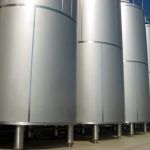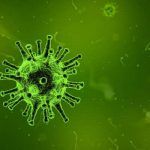Once upon a times, the rag and bone man came around and hauled away our unwanted bits and pieces. They went to a scrapyard and from there to glass, fabric and metal recycling processors.
Then came plastic and it changed everything for the worse.
Plastics are only about 60 years old but are choking the planet already. Recycling them is not new but it’s still in its infancy. China banned the import of plastic waste recently – recycling it was big business there for a while – and the result is more pressure on our recycling facilities and precious landfill space.
Plus, the plastics manufacturing process generates a great deal of carbon.
Only 2% of packaging plastics are actually recycled into something else
That’s a depressing fact. It seems that about 33% of drinks bottles and suchlike is simply tossed into the environment. Perhaps 40% goes to landfill where it takes centuries to decompose. Maybe 14% gets incinerated or used for energy recovery.
One of the biggest reasons for this low recovery rate is that the bulk of such plastics are made from either polypropylene (PP) or polyethylene (PE). They have very different chemical structures. That means they can’t be processed together for repurposing. Identifying and separating them is too costly.
Plastics are bulky making them costly to handle
Compare a kilo of plastic drinks bottles with a kilo of metal. The bottles would probably fill a car boot while you easily get more than 20 kilos of metal in there. Recyclers pay by weight, not by volume.
It means that all the plastics we buy from the supermarket in all kinds of packaging makes waste collection very expensive compared with years ago. Our council tax pays for part of our consumer bad habits. Glass bottles were not so bad after all and much cheaper in the overall scheme of things.
Did you know that there are about 40,000 different types of plastic?
Amazing but true. There are 7 broad types meaning 7 different recycling processes for repurposing that waste into some useful material. That’s a challenge for the recycling industry just for starters.
Many plastics cannot be sorted economically
Plastics frequently contain flame retardants to prevent dripping, resist ignition, minimise smoke formation and flames spreading. The level of retardants varies considerably to meet safety standards and due to the need to customise the plastic for particular applications.
Reprocessing can handle only plastics of the same type with similar flame retarding additives. So plastics must be sorted both by type and by flame retarding additive. That’s costly to do correctly although new technical advances may help.
Low oil prices make plastics recycling uneconomical
We all love low petrol prices but that has undesirable knock-on effects for the environment. As well as encouraging more travel, it makes the raw material for plastics cheaper too.
That means it’s cheaper to buy new products than material produced by recycling. Good for manufacturers but disastrous for the plastics recycling industry.
When recycling processes are uneconomical, it chokes investment in new technologies. Only profitable businesses will invest in research and so it stops.
The outlook for plastic recycling
Plastics were never made to be recycled and that’s part of the problem. Maybe a new type of plastic being developed could change that. Change is badly needed because we simply can’t go on like this.
Further reading
10 things you can’t put in your household recycling
Here’s the truth behind the UK’s biggest recycling myths
Podcast: Closing the loop – plastic recycling 101
References
BBC (Aug 2019). 10 things you can’t put in your household recycling. Retrieved from https://www.bbc.co.uk/news/uk-49280709
China Dialogue Ocean (Apr 20188). Podcast: Closing the loop – plastic recycling 101. Retrieved from https://chinadialogueocean.net/2483-podcast-closing-the-loop-plastic-recycling-101/
Environmental News Network (Jan 2019). Improved plastics recycling thanks to spectral imaging. Retrieved from https://www.enn.com/articles/56487-improved-plastics-recycling-thanks-to-spectral-imaging
Environmental News Network (Feb 2017). New polymer additive could revolutionize plastics recycling. Retrieved from https://www.enn.com/articles/50660-new-polymer-additive-could-revolutionize-plastics-recycling
Science Daily (May 2019). Plastic gets a do-over: Breakthrough discovery recycles plastic from the inside out. Retrieved from https://www.sciencedaily.com/releases/2019/05/190507110452.htm
The Wasters Blog (Sep 2018). Energy from Waste and Incineration – What Could be Better? Retrieved from https://wastersblog.com/814/energy-from-waste-and-incineration/
Wired (Aug 2019). Here’s the truth behind the UK’s biggest recycling myths. Retrieved from https://www.wired.co.uk/article/recycling-myths-busted










